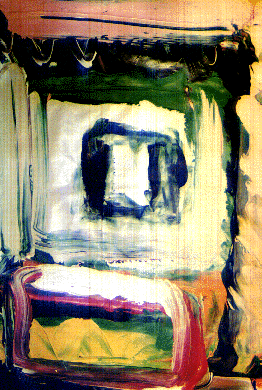
More Mortality When the topic is mortality, in any of its forms, mincing words is of no avail. A (historical/literary/ philosophical) fable: Candrakirti, the most formidable commentator on Nagarjuna's seminal Mulamadhyamakakarika, from which Mahayana Buddhism and ultimately Zen derive {('We declare that whatever is relational origination is sunyata ('emptiness'). It is a provisional name for the mutuality of being, and indeed, it is the middle path.') [Post-normalism, Buddhism is only of metaphorical interest (its central premise underdetermined, and, to that degree and in the interest of consolation, both unsupportable and superfluous]}, responded tersely, superficially harshly, to a questioner who inquired about the reality of suffering, 'Go back to your studies.' On point is Wittgenstein's critique of Freud: 'One must have a very strong and keen and persistent criticism in order to see through the mythology that is offered or imposed on one . . . A powerful mythology.' We suffer a comparable mythology. The roots of dread, even, especially, as to cancer, disease generally, old age, death, physical pain, emotional distress, intellectual perplexity, etc., etc., are desperately and decisively presumptive as to ontology (the nature of things, of you, of pain . . . ), which imposes untenable claims on future experience, and, by implication of the thought, on all experience. Socrates, in the concluding words of Plato's Apology, confirmed his philosophical rank and legacy with the parting remark to his friends, 'And so we go our separate ways, you to live and I to die. And which is better, only God knows.' Sans reference to divinity, it is a statement as to the conditions of life in time, the subtle but pervasive meaning of time. Two and a half millenia later, the struggle continues to explicate this thought, to clarify its implications. If you (people generally), wish to suffer, the choice is yours. But, all appearances to the contrary, it is a choice, that only becomes clear in the face of an Everest of analysis. (Another Buddhist fable: The depth of our suffering only becomes clear once we have surfaced at 'the further shore.') But that is why the thought (differential ontology) exists, and why it should be studied. The difficulties of such a study are immense, but pale before the alternative: the anguish of mortality, consecrated in common sense, and sinnewed in every mode of habitual response. (This may seem insufferably cerebral, but here as elsewhere, appearances are deceiving. As chemotherapy, it must be harsh to kill what threatens to strangle us.)
![]()